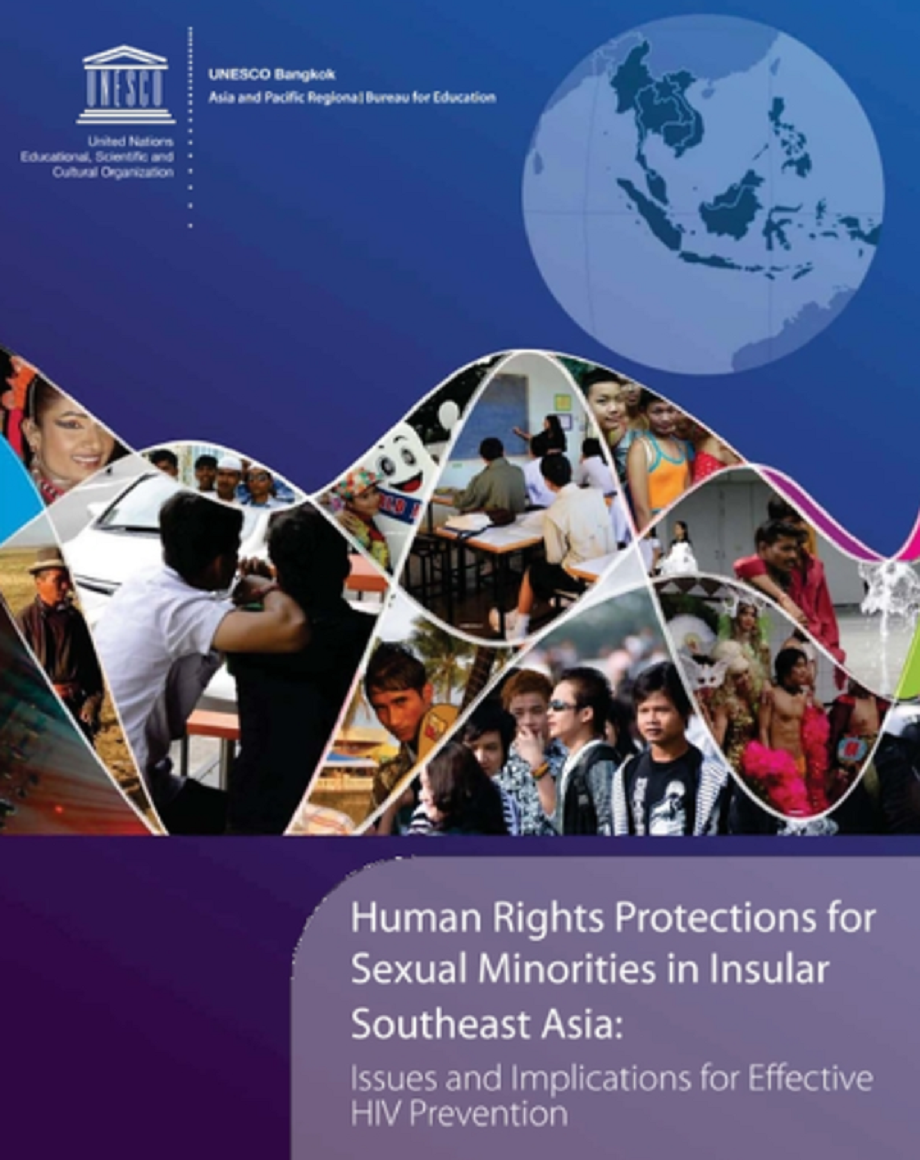
UNESCO Bangkok is releasing this week at the International Congress on AIDS in Asia and the Pacific (ICAAP) in Korea the publication: Human Rights Protections for Sexual Minorities in Insular Southeast Asia: Issues and Implication for Effective HIV Prevention.
This publication aims to provide an overview of the situation regarding protection of the rights of sexual minorities in six countries in insular Southeast Asia (Brunei Darussalam, Indonesia, Malaysia, the Philippines, Singapore and Timor-Leste). In some countries in Asia, any topic related to sexual orientation is so taboo that, for such topics, freedom of speech and freedom of assembly are restricted. Other countries go further and criminalize behaviors such as male to male sex. Both the individual who is at risk of infection and the health worker trying to implement an HIV prevention program are hampered by such criminalization, because under such circumstances it is nearly impossible to openly discuss homosexual behavior and HIV risk. The denial of the human rights of sexual minorities, through stigma and discrimination, is impending HIV prevention programs to be accessible to these groups. The criminalization of homosexual behavior is driving those at greatest risk of infection underground.
Criminalization of such behavior makes it nearly impossible to promote the use of condoms and lubricant, or to provide outreach, education, testing and treatment to those engaging in same-sex behavior. If HIV prevention programs in the Asian region do not change their target groups by 2020, three risk behaviors will account for nearly all new infections in the region; unsafe sex between men, sharing of needles, and unprotected sex in the context of sex work. This study review finds the international human rights violations in each of the six countries, and some of the factors for which it adopts or neglects these laws. There is the fact that Brunei Darussalam criminalizes homosexuality, with a maximum penalty of 10 years in prison and large fines. There is no anti-discrimination protection, and freedom of expression and assembly is restricted, especially when it comes to sexual orientation. Indonesia does not criminalize homosexuality, but the federal government has allowed certain municipal governments to adopt Sharia law, which applies to Muslim citizens, bans homosexuality. Transgender individuals are reported to suffer serious discrimination, exposure to violence and sexual exploitation. Malaysia criminalizes homosexuality and cross-dressing, and it is the strictest of the six countries examined in this study. Maximum penalty is 20 years in prison, with fines and lashes. Sharia law is commonly practiced; freedom of speech is restricted when the subject is homosexuality. The most liberal and progressive of the six countries, regarding sexual orientation and gender identity are the Philippines. Failed attempts to pass anti-discrimination bills are believed to be caused by the strong influence of the Catholic Church and particular notions of masculinity that are part of the Filipino culture. Singapore has the Penal Code which criminalizes “outrages of decency” between male homosexuals. Timor-Leste has signed all the major international human rights treaties and is the only country in insular Southeast Asia to have supported the 2008 United Nations Joint Statement on Human Rights, Sexual Orientation and Gender Identity. When the rights of sexual minorities are upheld, HIV prevention programming can become more accessible and more responsive to the sexual health needs of men who have sex with men and transgender people throughout insular Southeast Asia.
For further information on UNESCO Response to HIV & AIDS in Asia and the Pacific, please contact: Justine Sass at j.sass@unesco.org
